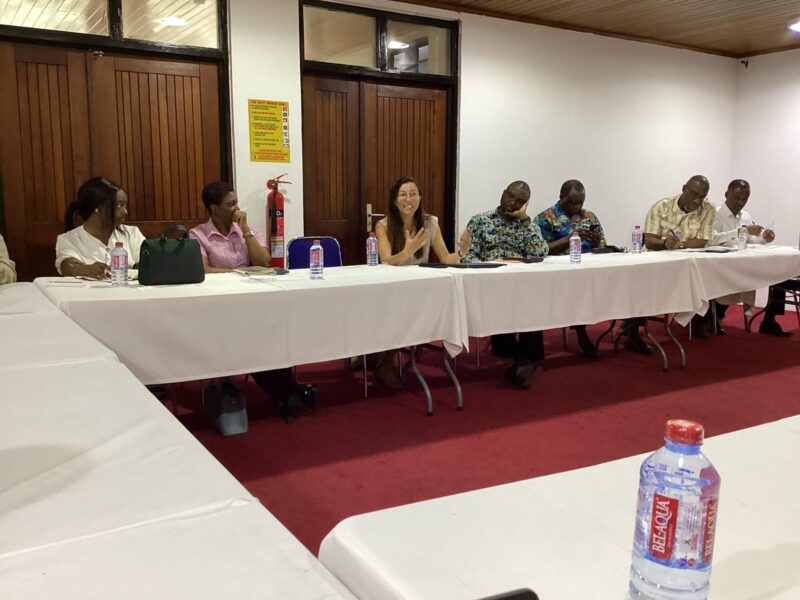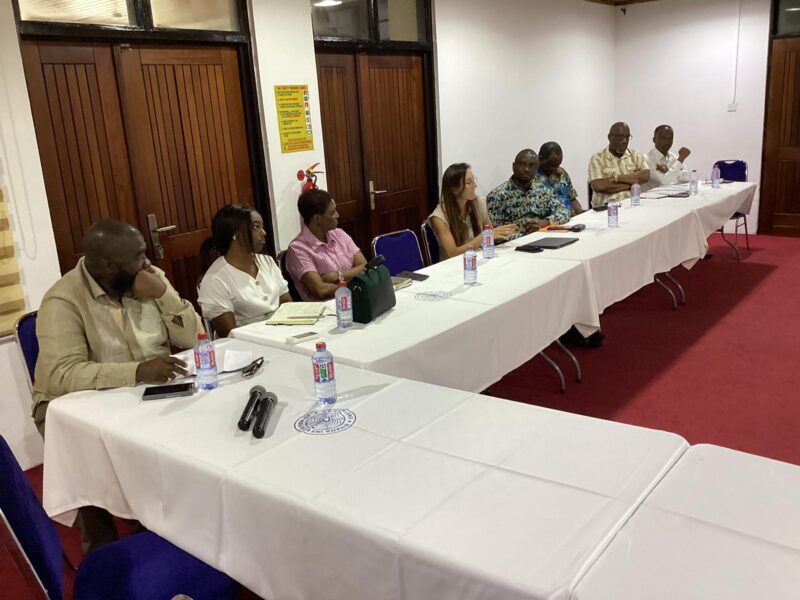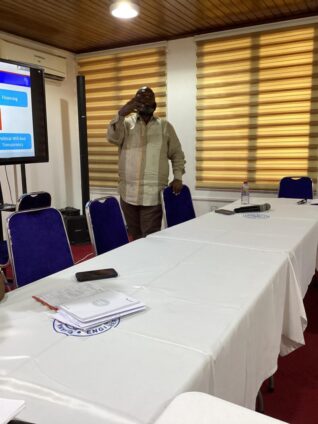
Audio By Carbonatix
Experts in the infrastructure space are calling for increased capacity building to help the nation bridge the infrastructure deficit estimated at US$1.5 billion per annum.
They made the call at a Public-Private Partnership (PPP) Expert Panel organised in Accra.
The event brought together some of the leading procurement experts in Ghana, industry professionals, policymakers, contractors, academics, and researchers to explore the underlying issues and propose solutions.
The PPP Expert Panel and Roundtable was organised by Project Excellence Ghana, a Ghanaian consulting firm, with support from UK-based consultants, Innovation Inc. and Anglia Ruskin University, UK.
It was chaired by Surveyor Humprey Amegadoe, an Accra-based Quantity Surveying Consultant.
The aim of the event was to propose innovative strategies to increase the number of PPP projects that reach financial close by exploring the constraints to the implementation of PPP projects in Ghana. Throughout the forum, innovative solutions were be identified to enable the increased adoption of PPPs in meeting the huge infrastructure deficit.
Giving the keynote address, leading PPP Lawyer, David Ofosu-Dorte, Founder & Senior Partner at AB & David Law, acknowledged a lack of political will as a major constraint to the successful implementation of PPPs in Ghana.
He recommended that governments should start PPP projects early in their tenure to give the best chances of completing them on time.

Ministry of Finance on PPP Projects
Also speaking at the event was Cynthia Ayebo Arthur, the Acting Director of the Public Investment and Asset Division (PIAD) at the Ministry of Finance.
She highlighted the key activities of her division to support the development and implementation of PPP projects.
She identified inadequate levels of capacity amongst stakeholders, both from the public and private sectors as a key challenge to the successful implementation of PPPs. Whilst her outfit had been involved in building capacity in Public Investment Units (PIUs) within Ministries, Departments, and Agencies (MDAs)/Metropolitan, Municipal, and District Assembles (MMDAs), she called for an intensification of the capacity-building initiatives to cover all stakeholders in the PPP chain.

Infrastructure Risks Major Challenge to PPPs
Magdalena Leisten Jahonssom, Infrastructure, and Climate Finance Adviser at the British High Commission, Accra, identified the high risks associated with infrastructure as a major challenge and suggested robust risk management programmes to mitigate the many associated risks.
Her outfit, she said, was ready to partner efforts to develop the use of PPPs in providing infrastructure.
Participants agreed that there were significant available resources and financing globally for supporting PPP projects and that with the appropriate supporting framework, PPPs could become a major source for the development of infrastructure in Ghana.
The panel of experts recommended that a nationwide capacity-building programme be deployed to develop and enhance the skills and expertise within the public and private sectors for the implementation of PPP projects.
It was also suggested that local and international market-sounding events, including roadshows be organized to showcase Ghana’s investment opportunities in PPPs and Ghana’s overall readiness to increase the deployment of PPPs as a major source of infrastructure development.
PPPs Provide Huge Opportunities
In his remarks, Sureyor. Amegadoe underscored the huge opportunities that PPPs provided for developing infrastructure. He challenged stakeholders to work collaboratively to ensure that PPPs become an important vehicle for developing critical national infrastructure in Ghana. The convener of the event, Dr. Joseph K. Ofori-Kuragu from Anglia Ruskin University, UK, and Director, Innovation Inc. on behalf of the organizers promised that the necessary follow-up actions would be undertaken to ensure the attainment of all the recommendations made by the panel.
As part of this, he announced that an awareness and capacity-building programme will be held for leaders at the local and national levels with responsibility for decision-making concerning PPP projects such as MPs, PPP Committee members, representatives of Office of Regional Co-ordinating Councils, General Assemblies of District Assemblies, and Contracting Authorities (MDAs and MMDAs).
The Ministry of Finance estimates that addressing Ghana‘s infrastructure deficit could require sustained spending of at least US$1.5 billion per annum over at least 10 years. It is for this reason that the government of Ghana is encouraging the use of Public-Private Partnerships (PPP) as a means of leveraging public resources with private sector resources and expertise to close the infrastructure gap and deliver efficient public infrastructure
Latest Stories
-
2026 FIFA World Cup: What African fans will pay to watch their teams
3 hours -
2026 World Cup: How FIFA priced Africa’s ordinary fan out of the tournament – and why the gap with the rest of the world is impossible to ignore
3 hours -
Creative industries ‘incredibly worried’ about OpenAI-Disney deal
3 hours -
Low condom use among young people in Volta Region disheartening – AIDS Commission
4 hours -
Prada to launch $930 ‘Made in India’ Kolhapuri sandals after backlash
4 hours -
Gov’t moves to fix Armed Forces housing crisis with 2000 new units and jets
4 hours -
Boy, 13, shot dead as youth torch mining vehicles in Adelekezu
4 hours -
‘Architects of AI’ named Time Magazine’s Person of the Year
4 hours -
GPL 2025/26: Berekum Chelsea edge Hohoe United to end winless run
5 hours -
GPL 2025/26: Mensah’s penalty helps Bechem United beat Eleven Wonders
5 hours -
Did Ghana need 110 brand new hospitals at once?
5 hours -
Benin: Ex-president’s son arrested after foiled coup attempt
6 hours -
Reconsidering Ghana’s presidential age limit: Why Article 62(b) of the 1992 Constitution deserves review
6 hours -
ECOWAS unanimously endorses President Mahama for African Union chairmanship
6 hours -
Douri-Naa predicts victory for ‘Second Dombo’ Bawumia in NPP primaries and 2028 election
6 hours

